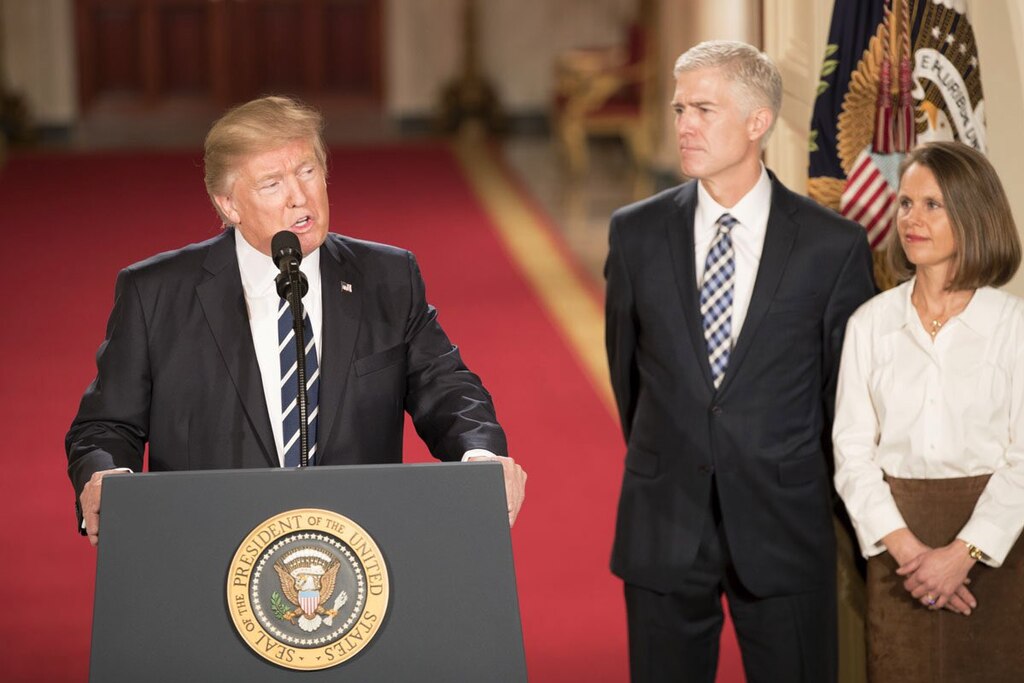President-elect Donald Trump has unveiled a controversial policy agenda prioritizing research into alternative medicine, sparking heated debates across the political and scientific landscapes. The 2025 initiative, announced during a policy briefing in Washington, D.C., seeks to allocate significant federal funding toward exploring alternative and complementary treatments, including homeopathy, acupuncture, and herbal medicine.
Trump emphasized the need for “freedom of choice” in healthcare, arguing that Americans should have access to therapies beyond conventional medicine. “It’s time to explore the full spectrum of healing solutions,” he stated, adding that such treatments could address chronic conditions and reduce the cost of healthcare.
However, the policy has drawn criticism from medical experts who warn that emphasizing unproven therapies could undermine public trust in science. Critics argue the plan leans heavily on anecdotal evidence rather than rigorous scientific research, raising concerns about its implementation and effectiveness.
Key Components of Trump’s Alternative Medicine Initiative
Under Trump’s proposal, the National Institutes of Health (NIH) would establish a new division focused exclusively on alternative and complementary medicine. The initiative aims to fund clinical trials to test the efficacy of treatments like chiropractic care, traditional Chinese medicine, and naturopathy. Trump has also proposed tax incentives for private-sector research into alternative therapies.
Proponents of the plan, including members of Trump’s health advisory board, argue that it could lead to breakthroughs in managing chronic pain and mental health conditions. Advocates also highlight the potential for reducing America’s reliance on pharmaceutical drugs, particularly opioids, by integrating alternative approaches into mainstream healthcare.
Despite these claims, the initiative has raised red flags among leading medical organizations. The American Medical Association (AMA) issued a statement warning that prioritizing unverified therapies could erode the public’s confidence in evidence-based medicine. “Alternative medicine research must be held to the same rigorous standards as conventional medicine to ensure patient safety,” the AMA cautioned.
Public Reactions Divide Social Media
Trump’s policy announcement has ignited fierce debates online, with netizens offering diverse perspectives:
- @HealthMattersNow: “Trump’s alternative medicine push is dangerous. Science, not politics, should guide healthcare policies!”
- @FreedomForHealth: “Finally, someone’s giving us the freedom to choose! Alternative medicine deserves a seat at the table.”
- @RationalMD: “Funding pseudoscience undermines years of progress in medicine. Trump’s policies are reckless and anti-science.”
- @WellnessWarrior: “This could revolutionize healthcare! Holistic treatments are the future, and Trump is leading the way.”
- @FactCheckMD: “Alternative medicine research isn’t inherently bad, but let’s ensure it’s based on evidence, not politics.”
- @SkepticEye: “Snake oil salesmen are already celebrating. Trump’s plan could lead to more harm than good.”
Challenges Facing the Initiative
While the policy could expand treatment options for millions of Americans, critics argue that its success depends on stringent oversight. The lack of proven efficacy for many alternative therapies raises questions about how federal funds will be allocated. Experts warn that public health risks could increase if unverified treatments gain legitimacy without proper validation.
Trump’s plan also faces significant logistical hurdles, including the need to collaborate with regulatory agencies and healthcare providers. Medical professionals caution that integrating alternative therapies into mainstream healthcare requires careful evaluation to avoid undermining existing treatments.



 Bosnian Serb Presidential Rerun Confirms Victory for Dodik Ally Amid Allegations of Irregularities
Bosnian Serb Presidential Rerun Confirms Victory for Dodik Ally Amid Allegations of Irregularities  Trump Allows Commercial Fishing in Protected New England Waters
Trump Allows Commercial Fishing in Protected New England Waters  Anutin’s Bhumjaithai Party Wins Thai Election, Signals Shift Toward Political Stability
Anutin’s Bhumjaithai Party Wins Thai Election, Signals Shift Toward Political Stability  Japan’s Prime Minister Sanae Takaichi Secures Historic Election Win, Shaking Markets and Regional Politics
Japan’s Prime Minister Sanae Takaichi Secures Historic Election Win, Shaking Markets and Regional Politics  Ohio Man Indicted for Alleged Threat Against Vice President JD Vance, Faces Additional Federal Charges
Ohio Man Indicted for Alleged Threat Against Vice President JD Vance, Faces Additional Federal Charges  U.S. Lawmakers to Review Unredacted Jeffrey Epstein DOJ Files Starting Monday
U.S. Lawmakers to Review Unredacted Jeffrey Epstein DOJ Files Starting Monday  U.S.-India Trade Framework Signals Major Shift in Tariffs, Energy, and Supply Chains
U.S.-India Trade Framework Signals Major Shift in Tariffs, Energy, and Supply Chains  Israel Approves West Bank Measures Expanding Settler Land Access
Israel Approves West Bank Measures Expanding Settler Land Access  Pentagon Ends Military Education Programs With Harvard University
Pentagon Ends Military Education Programs With Harvard University  Federal Judge Restores Funding for Gateway Rail Tunnel Project
Federal Judge Restores Funding for Gateway Rail Tunnel Project  Sydney Braces for Pro-Palestine Protests During Israeli President Isaac Herzog’s Visit
Sydney Braces for Pro-Palestine Protests During Israeli President Isaac Herzog’s Visit  Trump Lifts 25% Tariff on Indian Goods in Strategic U.S.–India Trade and Energy Deal
Trump Lifts 25% Tariff on Indian Goods in Strategic U.S.–India Trade and Energy Deal  Trump Congratulates Japan’s First Female Prime Minister Sanae Takaichi After Historic Election Victory
Trump Congratulates Japan’s First Female Prime Minister Sanae Takaichi After Historic Election Victory  Trump Says “Very Good Talks” Underway on Russia-Ukraine War as Peace Efforts Continue
Trump Says “Very Good Talks” Underway on Russia-Ukraine War as Peace Efforts Continue  India–U.S. Interim Trade Pact Cuts Auto Tariffs but Leaves Tesla Out
India–U.S. Interim Trade Pact Cuts Auto Tariffs but Leaves Tesla Out  Bangladesh Election 2026: A Turning Point After Years of Political Suppression
Bangladesh Election 2026: A Turning Point After Years of Political Suppression  Netanyahu to Meet Trump in Washington as Iran Nuclear Talks Intensify
Netanyahu to Meet Trump in Washington as Iran Nuclear Talks Intensify 































